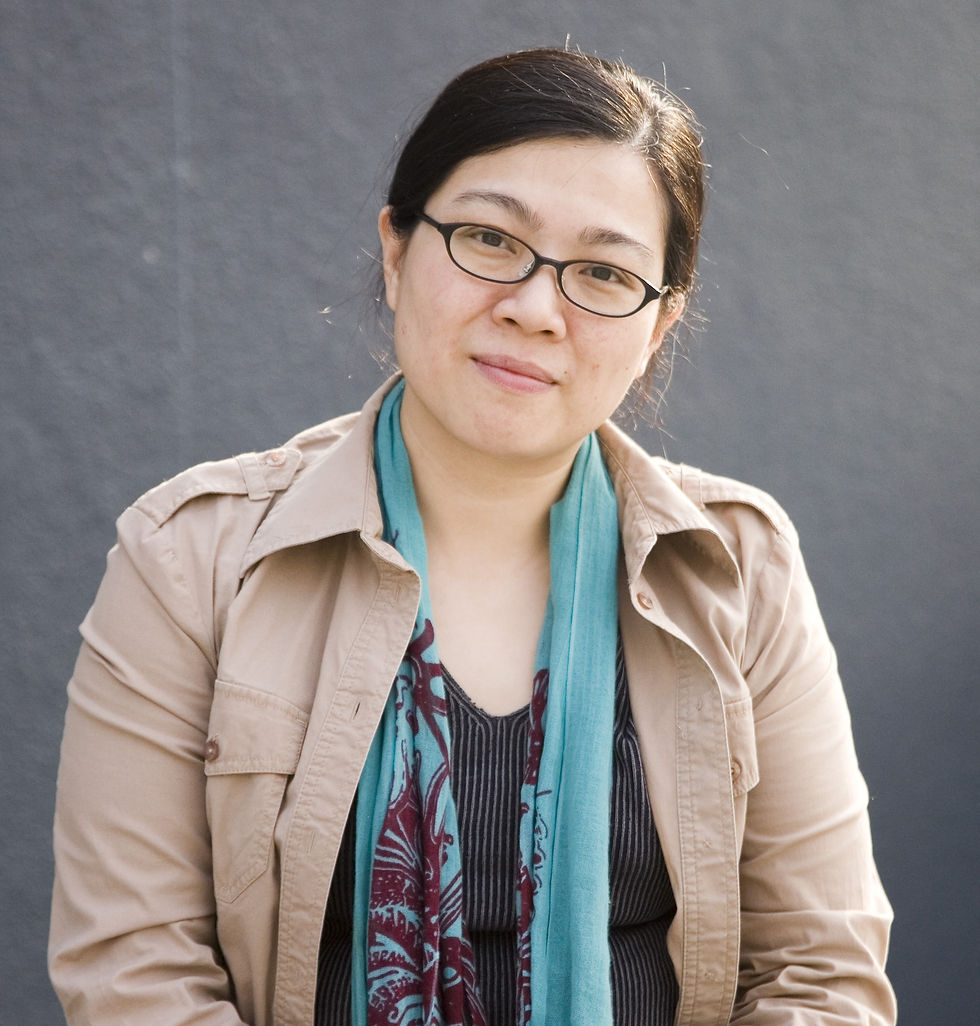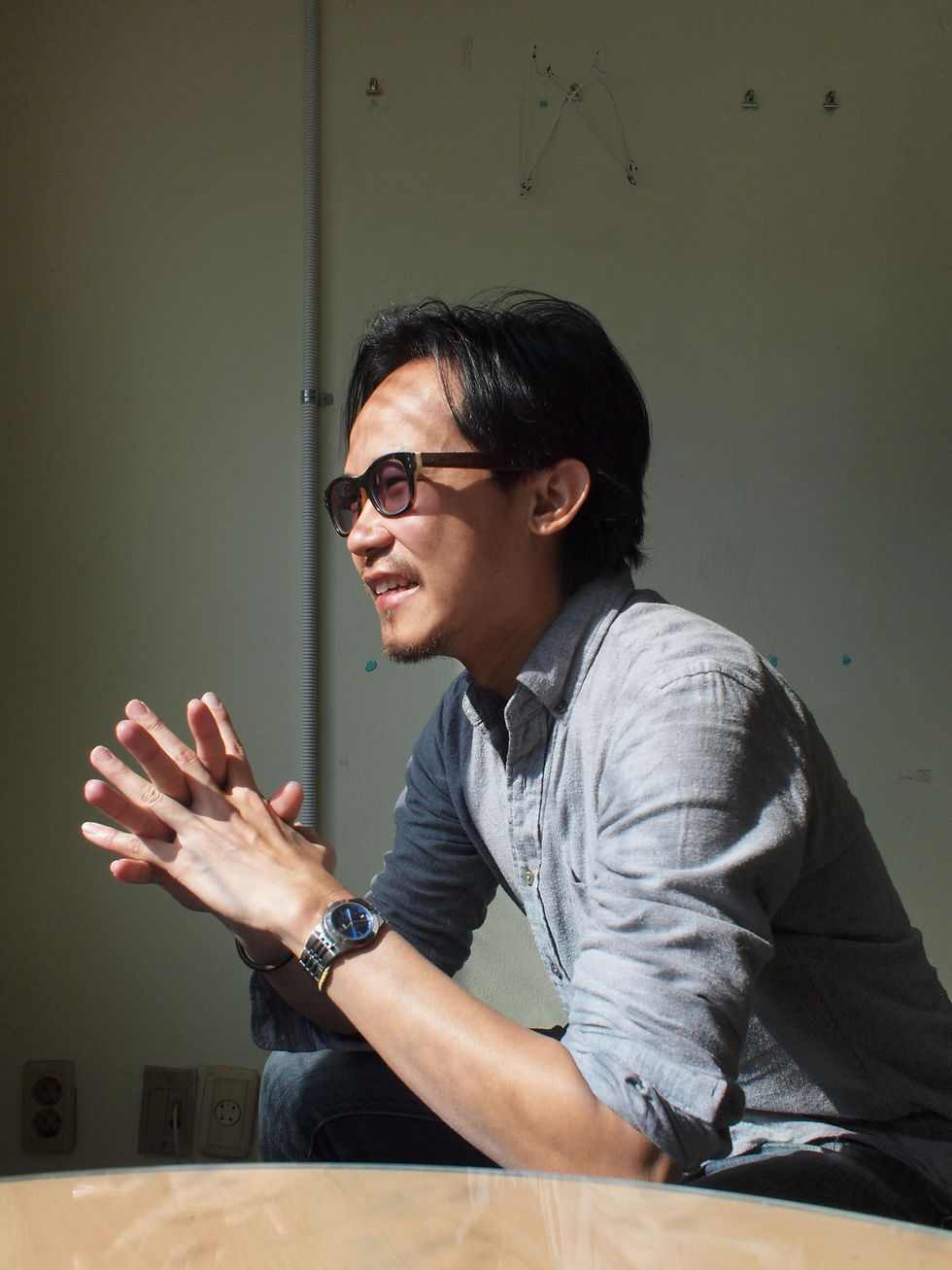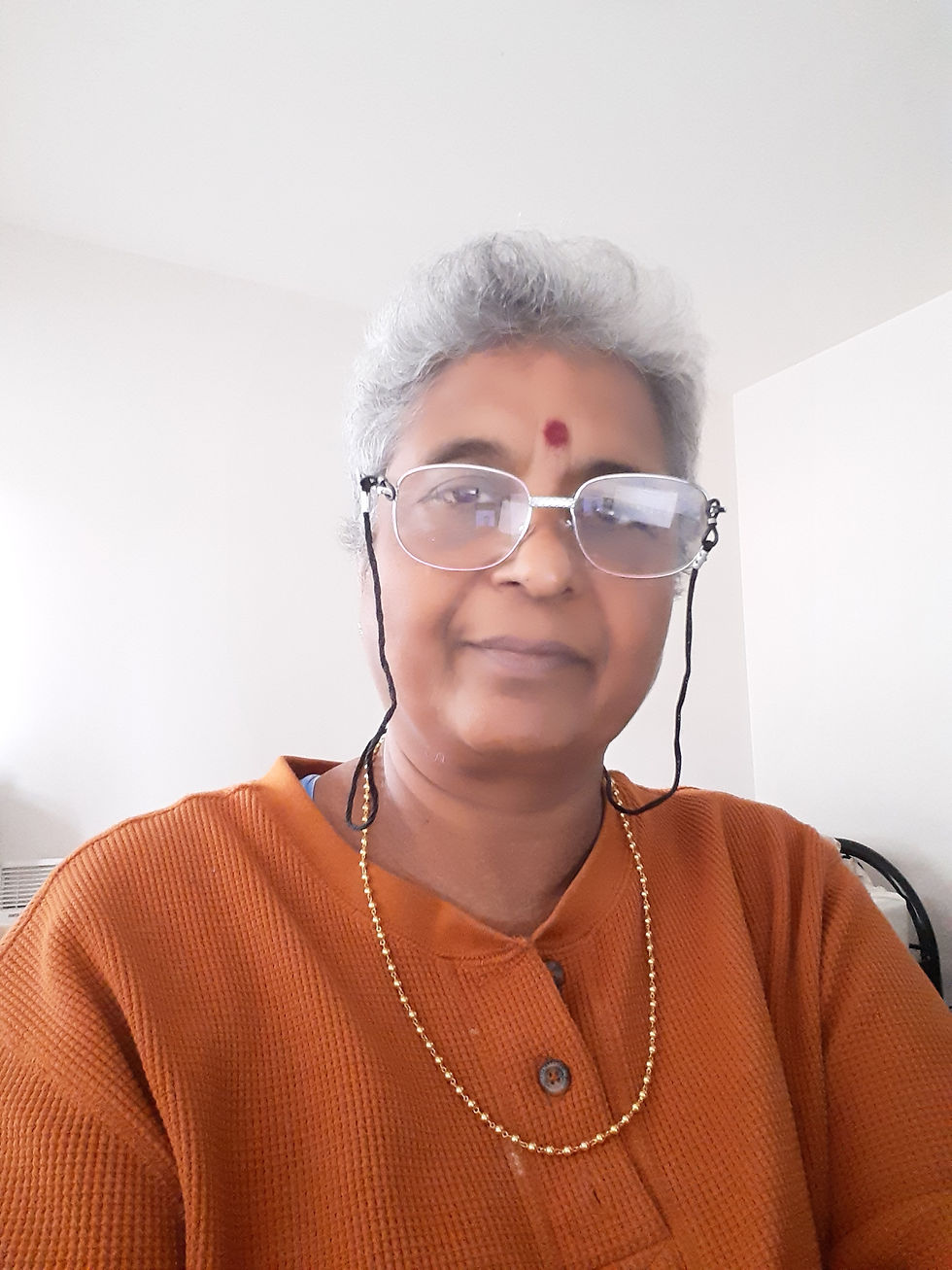Practice-Based Research (PBR) Online Forum
- researchpractice

- 2020년 11월 16일
- 11분 분량
최종 수정일: 2024년 4월 2일

Finding Balance: An Online Forum for Practice-Based Research in Creative Arts and Technologies
Practice-based research (PBR) has been adopted in many disciplines including but not limited to the creative arts (art, design, architecture, performance and music). In the 1980s, PBR and its related approaches (i.e. practice-as-research, practice-led research) came of interest to creative disciplines in Australia, Northern Europe and the United Kingdom. The distinguishing factor of PBR is the emphasis on generating new knowledge through practice. Crucial to PBR is an understanding of one’s practice through reflection and analysis which is accompanied by artefacts or objects produced through practice as part of the research process.
As of 2020, however, most Asian Pacific countries have not yet adopted a PBR approach for academic degree programmes in creative arts and technologies. Furthermore, the concept of PBR is still not fully understood or accepted within traditional academic administration and curriculum structures. In this forum, we focus on providing strategies for developing a PBR approach to teaching and learning in the creative arts and technologies fields. The forum is held online around once a month from November 2020. Prof Jon McCormack, Founding Director of SensiLab, opens the forum with a keynote outlining the historical and conceptual background of PBR and how it has developed at SensiLab.
[Season 1] PBR in Creative Arts and Technologies Across the Asia Pacific (November 2020 - April 2021)
Session 1: Practice-based Research at SensiLab (Keynote)
Session 2: PBR at Creativity & Cognition Studios and Animal Logic Academy from University Technology of Sydney
Session 3: Diverse Foundations and Approaches to PBR at Monash University
Session 4: PBR Case Studies from PhD Candidates and Recent Graduates
Session 5: Teaching PBR - Panel Discussion
Session 6: Contextualisation of PBR in the Asia Pacific Region
PBR Forum Team
Forum director: Sojung Bahng
Forum organiser: Jiyun Park
Forum manager: Hobin Kim
Associate chair: Jaegeun Lee
Committee member: Eugenia Kim
Senior advisor: Jon McCormack
Session 1 (Keynote)
"Practice-based Research at SensiLab"
Prof Jon McCormack, SensiLab founder and director
Prof Jon McCormack describes practice-based research with an emphasis on the kinds of knowledge representation and communication that research through practice entails. He contextualises this approach using a research laboratory, SensiLab, as an example of a bespoke research facility built around the concept of learning through making and doing, and building a community of practice. Prof McCormack also explores the conceptual and spatial design of the lab as a way of encouraging knowledge sharing and open-ended exploration.

SensiLab is a practice-based research (PBR) laboratory that specialises in creative technologies and media art. It was launched in 2015 by an award-winning artist-technologist Prof Jon McCormack with the vision of facilitating innovative research through creative applications of media and technology. Situated within the Information Technology Faculty of Monash University, SensiLab fosters a hybrid environment combining science, engineering and the creative arts. This allows for a unique PBR PhD experience which values both artistic virtuosity and academic rigour. The presence of internationally renowned artists-in-residence and faculty as well as collaborations with other major universities and industry partners means that SensiLab is constantly on the cutting edge as a leader in PBR for the Asia Pacific.

Jon McCormack is an Australian-based artist and researcher in computing. He is currently full Professor of Computer Science and director of sensiLab at Monash University in Melbourne, Australia. Since the late 1980s McCormack has worked with computer code as a medium for creative expression. His artworks have been widely exhibited at leading galleries, museums and symposia, including the Museum of Modern Art (New York, USA), Tate Gallery (Liverpool, UK), ACM SIGGRAPH (USA), Prix Ars Electronica (Austria) and the Australian Centre for the Moving Image (Australia). He is the recipient of over 16 awards for new media art and computing research including prizes at Ars Electronica (Austria), Images du Futur (Canada), New Voices, New Visions (USA), Alias/Wavefront (USA), The John Lansdown Award for Interactive Media (Europe/UK), Nagoya Biennial (Japan), the 2012 Eureka Prize for Innovation in Computer Science and the 2016 Lumen Prize for digital art (still images).
Session 2 (Open Forum)
"Practice-based research at the Creativity & Cognition Studios (CCS) and the Animal Logic Academy from University of Technology Sydney (UTS)"
In this session of the PBR Forum, Professor Andrew Johnston talks about his approach to practice-based research at the Creativity & Cognition Studios (CCS) and the Animal Logic Academy from University of Technology Sydney (UTS). Dr Alon llsar (Monash University) conducts an interview with Andrew and moderate an open discussion on PBR based on Andrew’s presentation.

About Prof Andrew Johnston
Andrew Johnston is a Professor of Human-Computer Interaction at the University of Technology Sydney, where he works as the Research Director of the UTS Animal Logic Academy, an education and research studio focusing on creative practice and digital technologies. He also co-directs the Creativity and Cognition Studios, an interdisciplinary research group working at the intersection of performance, art and technology.

About the Creativity & Cognition Studios
Creativity & Cognition Studios (CCS) is an internationally recognised multi-disciplinary environment for the advancement and understanding of practice in digital media and the arts. It provides nationally and internationally recognised artists and technologists with a space in which to collaborate, experiment and create as equal partners through practice-based research.
Creativity & Cognition Studios arose from a concern for the intersection of art and technology as initially developed in the late 1960s by Ernest Edmonds and other pioneers. These early explorations led to the launch of the Creativity & Cognition Conference Series by Ernest Edmonds and Linda Candy in 1993. C&C is now a regular event in the Association of Computing Machinery’s SIGCHI calendar. In 1996, the Creativity & Cognition research programme was initiated at Loughborough University, UK. The structure consisted of artist-in-residence programmes in which action-based research studies of artist and technologist collaborations were conducted. The Candy and Edmonds book, Explorations in Art and Technology, reports on the first few years of this programme. In 2002, the Creativity & Cognition Studios moved across the world to Sydney and has now re-formed in an enhanced form at the University of Technology, Sydney where it is part of the strategic research development of the University.

About the Animal Logic Academy
Established in 2017, the Animal Logic Academy is a custom-built VFX studio and teaching facility at the UTS campus in Sydney Australia. Taught postgraduate students are immersed in a full time studio environment while being mentored by industry experts using a combination of established film VFX processes and innovative new tools. The Academy also offers practice-based PhD research opportunities with current research projects having already won awards at industry festivals. Topics span a diverse spectrum of areas including hybrid CG/motion-control film-making, digital archiving techniques, and real-time music visualisation.
Session 3 (Open Forum)
"Diverse Foundations and Approaches to PBR at Monash University"
Elliott Wilson, Dr. Alon Ilsar and Dr. Camilo Cruz
In this session of the PBR Forum, Elliott Wilson, Dr. Alon llsar and Dr. Camilo Cruz (Monash University) talk about various foundations and approaches to practice-based research based on their personal experiences and evolutions. After their presentations, Dr. Jaegeun Lee (Pusan National University) moderates an open discussion on PBR based on the presenters' talks.

Elliott Wilson is the Lab Manager for SensiLab at Monash University. He is responsible for the operation of the research space and contributes to SensiLab projects as an engineer, educator and researcher. Elliott helps practitioners, researchers and students learn and explore both creative and technical skills. He also maintains the technical infrastructure that facilitates PBR at SensiLab.
Dr. Alon Ilsar is an Australian-based drummer, composer, instrument designer and researcher. He is the co-designer of a new gestural instrument for electronic percussionists, the AirSticks. Alon is researching the application of AirSticks to the field of health and well-being with the goal of making music creation more accessible to the broader community.
Dr. Camilo Cruz is an architectural designer and researcher who is currently working on the development of bio-inspired generative systems to drive digital fabrication processes, using fused deposition modelling and other techniques. His focus is on the use of evolutionary principles and machine learning as a means to open up avenues for innovation and creativity in design.
Session 4 (Open Forum)
"PBR Case Studies from PhD Candidates and Recent Graduates"
Dr. Caroline Ha Thuc, Dr. Lukasz Mirocha, Ms. Nina Rajcic and Mr. Marty Miller
In this PBR forum session, Dr. Caroline Ha Thuc, Dr. Lukasz Mirocha, Ms. Nina Rajcic and Mr. Marty Miller share their experiences on conducting and writing about practice-based research. Ms. Park Jiyun moderates an open discussion on practice-based research and the PhD journey based on the presenters’ talks.


Caroline Ha Thuc is a HK-based independent art critic and curator. She is working on research-based art practices and plural modes of knowledge production in Asia. In particular, she seeks to demonstrate that these practices have an emancipatory dimension and allow to open up the established systems of knowledge, be they inherited from the colonial past or modelled on authoritative discourses. She holds a Ph.D. from the School of Creative Media, City University of Hong Kong.
Lukasz Mirocha recently completed his PhD in the School of Creative Media, City University of Hong Kong. He has explored the affordances of general-purpose game engines and 3D content creation software for designing new types of real-time, CGI-based content and 3D/VR environments for art, entertainment and commercial purposes.
Marty Miller is a PhD candidate at The Hong Kong Polytechnic University. Marty’s practice concerns the act of noticing the overlooked in daily life. As a result, his work utilizes the photographic medium itself to implicate its importance in our lives. In doing so, he reveals relationships that impact a shared experience of looking at the world and the technology that enables our connection with it.
Nina Rajcic is an interdisciplinary artist, researcher, and developer exploring new possibilities of human-machine relationships. Nina is currently undertaking a practice-based PhD at SensiLab, Monash University. Her broader research investigates the nature of human-machine relationships in an increasingly post-human world, ultimately seeking to offer new rituals that produce shared meaning in the human and non-human assemblages of today.
Session 5 (Panel Discussion)
"Teaching Practice-Based Research"
Dr. Phoebe Chan, Dr. Tom Chandler and Dr. Loretta Kim
We interview a diverse panel of educator-researchers working in the Asia Pacific region about their approach to teaching and engaging in PBR. The panel includes Dr. Phoebe Chan (performing arts), Dr. Tom Chandler (media/technology) and Dr. Loretta Kim (humanities/social sciences). Dr. Eugenia Kim moderates the panel interview before opening the discussion to the audience.
About Speakers

CHAN, Yuk-Lan Phoebe is founder of Chan’s Applied Theatre Lab (CATLab). She holds extensive experience in research, drama and education practices. She has collaborated with a wide range of organisations in creating stage works, performing, teaching, researching and running facilitator training. Phoebe had convened Hong Kong’s pioneering master’s programme in applied theatre and drama education (Hong Kong Art School & Griffith University partnership), and was Head of Performing Arts Research at the Hong Kong Academy for Performing Arts.

Tom Chandler is a senior lecturer in the Faculty of IT at Monash University (Sensilab). His research explores the interdisciplinary applications of virtual world building. His project collaborations range from archaeology, anthropology and zoology through to industrial design and landscape ecology. His primary research endeavour, the Visualising Angkor Project, explores the evidence-based virtual reconstruction of Cambodia's medieval capital in the year 1300. In 2018 Tom was awarded the American Historical Association’s Roy Rosenzweig Prize for Innovation in Digital History for the university teaching resource; www.virtualangkor.com. In 2021, Virtual Angkor was awarded the Digital Humanities and Multimedia Studies Prize by the Medieval Academy of America.

Dr Loretta Kim is a Programme Director and Associate Professor at the School of Modern Languages and Cultures from the University of Hong Kong. She is a historian of late imperial and modern China, and has also taught courses on modern Asia, colonialism and imperialism in Southeast Asia, and Sino-Russian relations. Her primary research areas include the history of Inner Asia from 1600 to the present, comparative history of borderlands and frontiers, and Chinese ethnic minority languages and literatures (including Manchu and Mongolian). Dr. Kim's first single-authored monograph is about the Orochen people in northern Heilongjiang during the Qing dynasty (1644-1911). She is currently completing a GRF-funded project about non-Han names in Northeast China from 1600 to 1900, a second monograph about the Russian Orthodox Church in Hong Kong (planned for publication in 2021/2022), and a third monograph about food resources and culinary practices in the Amur River region.
Session 6 (Final Open Forum)
"Contextualisation of PBR in the Asia Pacific Region"
Dr Lim Kok Yoong, Dr Jeongseob Lee and Ms Soudhamini
For the PBR Forum's final session, we interview three artist-researchers from the Asia Pacific region who are working in countries which do not formally recognise PBR as a valid approach for the creative disciplines. The panel includes Dr Lim Kok Yoong (media art), Dr Jeongseob Lee (performance/technology) and Ms Soudhamini (film/media). They talk about their respective approaches to research based on existing art and media practice and how their works could be contextualised in terms of PBR. We also have an open discussion on how PBR can be more widely embraced in various Asia Pacific countries such as India, Malaysia and South Korea. As part of this final session, Professor Jon McCormack gives concluding remarks to wrap up the forum series.
About Speakers

Dr Lim Kok Yoong is currently a dean and senior lecturer in Faculty of Creative Multimedia, Multimedia University, Malaysia. He has 10 years of teaching experience in creative media related courses at university level. His teaching and research interest is driven by broad interests and genuine curiosity in new media and using them for creative expression. As a practicing media artist himself, he works with new media and technologies to create new media art works that are based on the existentialist perception of human conditions. His current research is to explore locative media and geospatial technologies as an autobiographical tool in art making. His research and practice has led him to build a substantial body of works for publications and exhibitions. The versatile range of his research is demonstrated by the collaborations with choreographers, technologists, engineers and fine artists. He always strives for quality and applies process and discipline towards optimizing performance in teaching, research and art making. He is a team worker and he can work positively and cooperatively in a teaching and research environment.

Dr Jeongseob Lee is an interdisciplinary artist, developer and performer. His main scope is the body, dance, stage combined with digital technologies. He has created numerous interactive performances, video works in collaboration with choreographers, and installations with body movements as material. He received his Ph.D. degree for genetic algorithm-based choreography support algorithm from the Korea Advanced Institute of Science and Technology. His current interest is in digital performances using AI and VR technologies. He is also teaching the courses Interactive Media Performance at Kookmin University and Creative Programming at Hanyang University.

Ms Soudhamini has a Mastersin English Literature from the StellaMaris College, Madrasand a Post Graduate Diploma in Film Direction from the Film and Television Institute of India, Pune. Since the late 1980s she has been working across platforms and genres making short fiction, feature length non-fiction and installation works, receiving commissions from the Government of India as well as International Institutions like the ZDF, Germany and the Prince Claus Fund, Netherlands. Her work has been shown at many International venues including the Oberhausen Film Festival, Germany, the FID Marseille, Creteil International Women’s Film Festival and Cinema Du Reel in France, the Festival du Popoli, Italy, Asia Society, New York and the Hawaii International Film Festival in USA and the Leningrad International Documentary Festival, Russia, besides regular screenings at the India International Film Festivals (MIFF and IFFI). She has officiated on International Selection Committees and Competition Juries and has been Artist in Residence in Japan (2000), Munich (2006) and Berlin (2010). Following many years as Visiting Professor at leading film and art schools in India, she began teaching full time at the film program of the Srishti Institute of Art, Design and Technology, Bengaluru from 2013. From August 2017 - May 2018, she was Artist-Scholar in Residence at the Dodge College of Film and Media Arts, Chapman University, California as Fulbright Nehru Research Fellow for Academic and Professional Excellence. In July 2018 she began her Practice-based PhD in Cinematic VR at the School of Communication and Creative Arts, Deakin University, Melbourne, Australia where she is currently based. Her academic writing both published and unpublished can be found at https://deakin.academia.edu/Soudhamini
